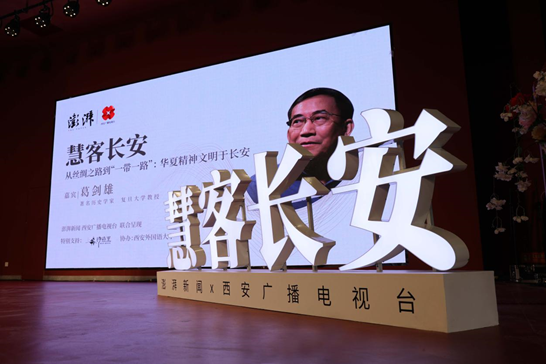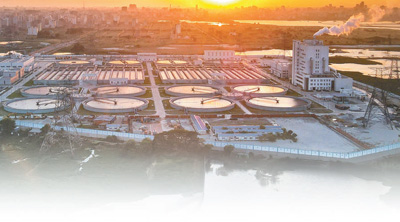The "Belt And Road" Low-Carbon Technology Innovation Cooperation Alliance Was Established, And Relevant Institutions, Universities And Enterprises In Shanghai Participated In It In Depth.
The "Belt And Road" Low-Carbon Technology Innovation Cooperation Alliance Was Established, And Relevant Institutions, Universities And Enterprises In Shanghai Participated In It In Depth.
On June 12, the "Belt and Road" Low-carbon Technology Innovation Cooperation Alliance, led by China's 21st Agenda Management Center and Shanghai Science and Technology Exchange Center and jointly initiated by 26 institutions from 14 countries, was officially established.
On June 12, the "Belt and Road" Low-carbon Technology Innovation Cooperation Alliance, led by China's 21st Agenda Management Center and Shanghai Science and Technology Exchange Center and jointly initiated by 26 institutions from 14 countries, was officially established, which will inject strong momentum into the low-carbon development of countries and regions along the "Belt and Road".
As one of the important contents of the Second Belt and Road Science and Technology Exchange Conference held in Chengdu, the alliance was established at the "Science and Technology Innovation Leads Carbon Peak and Carbon Neutrality" forum that day, the first meeting of the first Council was held, the alliance charter and organizational structure were determined, and the development plan was formulated. At the same time, the alliance also released a list of international expert committees. 12 internationally renowned experts and scholars, including Huang Zhen, He Kebin, Zhang Yuanhang, and Wang Hualin, Academician of the German National Academy of Engineering, Nikola Susan Jane Gaston, Academician of the Royal Society of New Zealand, Mohamed Talib Latif, Academician of the Malaysian Academy of Sciences (FASc), Everina Slavcheva, President of the Bulgarian National Academy of Sciences and Communications Academician, formed the first batch of alliance think tanks.
The construction of the "Belt and Road" low-carbon technology innovation cooperation alliance is of great significance to strengthening the international consensus on green and low-carbon, promoting the deep integration of scientific and technological innovation and green development, and promoting multilateral cooperation among countries in related fields. It will start from building a communication platform, building a collaborative innovation network, promoting the application demonstration of low-carbon technology, and strengthening talent training, and carry out a series of key tasks. In short, it is necessary to further gather international low-carbon innovation forces, focus on sharing low-carbon technologies, jointly build R&D platforms, and jointly shaping a sustainable future, and provide scientific and technological support for global climate governance and carbon neutrality goals.
The alliance's co-initiators cover well-known universities, professional research institutions, key technology enterprises, as well as industry organizations and innovation service institutions at home and abroad. The universities include Tsinghua University, Fudan University, Shanghai Jiaotong University, Southwestern Petroleum University, Hungary Segede University, King Abdullah University of Science and Technology, and Belarus State University. Professional research institutions include the Institute of Electrochemical and Energy Systems of the Bulgarian Academy of Sciences, Cambodia Development Center, Indonesian National Research and Innovation Agency Climate and Atmospheric Research Center, the Petroleum Research and Development Center of the Ministry of Petroleum of Iraq, the National Academy of Sciences of Kyrgyzstan, the Institute of Advanced Materials and Nanotechnology, the National Energy Technology Center of Thailand, the Turkish Solar Research Application Center, the Institute of Materials Science of the National Academy of Sciences of Uzbekistan, etc.; the initiators from the business community and industry organizations include Shanghai Electric Group, Zhenhua Petroleum Holdings Co., Ltd., Kazakhstan International Green Technology and Investment Center, Hungary Betzoltan Applied Research Non-profit Co., Ltd., as well as the Environmental Development Center of the Ministry of Ecology and Environment, the Macau Association for Science and Technology, and the Kazakhstan Science Foundation.
The newly established alliance immediately released its first joint R&D plan - the "Green Future" joint research and creation plan, marking a solid first step in promoting low-carbon technological innovation. The plan was jointly initiated by the Alliance Secretariat and Shanghai Electric. It focuses on four major directions: renewable energy, industrial low-carbonization, smart energy systems and carbon negative technology, publishes a list of R&D needs to global scientific research teams and enterprises, and carbohydrate research and demonstration cooperation. The first batch of 4 projects have been released, with the maximum funding amount of each project reaching US$100,000 to further encourage enterprises to increase investment in science and technology, cultivate green and low-carbon talents, and create a good science and technology innovation ecosystem.
On the same day, under the witness of Luo Dajin, director of the Shanghai Science and Technology Commission, Chen Qizhen, deputy director of the China Agenda 21st Century Management Center, Wu Xiaoling, second-level inspector of the Sichuan Provincial Department of Science and Technology, and Duan Xiaoyang, director of the Shanghai Science and Technology Exchange Center, the alliance also launched the "2025 Low-carbon Technology Innovation China Tour and Green Low-carbon Technology International Training Class", which was held in Chengdu and Shanghai Twin Cities from June 10 to 27. More than 40 overseas low-carbon partners from 18 countries and regions will use this dialogue and exchange mechanism to deepen capacity building and cooperation networks, share low-carbon cutting-edge technologies, discuss advanced and applicable solutions, and explore more mutually beneficial and win-win cooperation opportunities.





